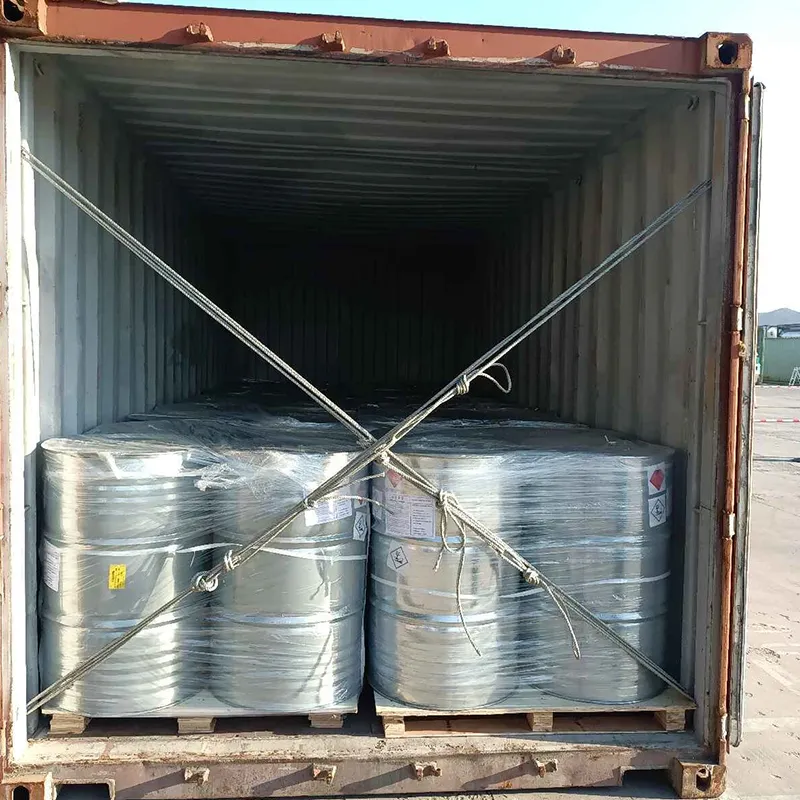
sodium benzoate china
Sodium Benzoate in China A Comprehensive Overview
Sodium benzoate, the sodium salt of benzoic acid, is a widely used food preservative and antibacterial agent, recognized for its effectiveness in preventing the growth of mold, yeast, and some bacteria. In recent years, its utilization has gained prominence, particularly in China, as the nation grapples with food safety challenges and the demand for longer shelf-life products.
Chemical Composition and Properties
Sodium benzoate is a white, crystalline powder that is highly soluble in water. When dissolved, it dissociates into sodium ions and benzoate ions. The compound is known for its low toxicity, making it suitable for various applications in food, pharmaceuticals, and cosmetics. Its effectiveness as a preservative is most pronounced in acidic conditions (pH 4.5 and below), which is typical for many food products, such as soda, fruit juices, pickles, jams, and jellies.
Production and Market Dynamics in China
China is one of the largest producers and consumers of sodium benzoate in the world. The country has a robust chemical manufacturing industry that encompasses various production methods, including the neutralization of benzoic acid with sodium hydroxide. The substantial domestic production capacity, combined with increasing consumption, has positioned China as a key player in the global sodium benzoate market.
The growing demand for processed and packaged foods, driven by urbanization and changing consumer habits, has significantly boosted the sodium benzoate market in China. As more consumers seek convenience, manufacturers are compelled to enhance the shelf life of their products, further underpinning the need for effective preservatives like sodium benzoate.
Regulatory Environment
The regulatory landscape in China surrounding food additives, including sodium benzoate, is stringent. The National Health Commission (NHC) sets forth guidelines that manage the allowable concentrations of sodium benzoate in various food products. As of the latest regulations, sodium benzoate is permitted in certain foods up to specific maximum levels, ensuring that its use is safe for human consumption.
sodium benzoate china

It is essential for manufacturers to remain compliant with these regulations. Strict enforcement of good manufacturing practices (GMP) ensures that sodium benzoate is produced and used in a manner that upholds food safety standards. Non-compliance can lead to significant penalties, including product recalls and damage to brand reputation.
Applications in Various Industries
Beyond the food and beverage industries, sodium benzoate is extensively used in the pharmaceutical sector as a preservative for medicines and in cosmetics to prevent microbial growth. Additionally, it finds applications in agricultural practices, where it can be used as a safe herbicide.
In the food industry, sodium benzoate is particularly favored for products that are susceptible to spoilage due to the presence of sugars or acids. Its use is prevalent in soft drinks, salad dressings, and dairy products, where it helps to inhibit microbial contamination.
Health Concerns and Consumer Awareness
While sodium benzoate is regarded as safe in regulated amounts, health concerns have emerged regarding its potential effects when exposed to certain conditions. Notably, reaction with ascorbic acid (vitamin C) can lead to the formation of benzene, a known carcinogen. This reaction has prompted researchers to investigate the safety of sodium benzoate in food products containing high levels of vitamin C.
Consumer awareness regarding food additives has also increased, leading to a rise in demand for natural preservatives. As a result, manufacturers are exploring alternatives to synthetic additives, prompting a shift towards clean-label products. This trend has potential implications for the use of sodium benzoate in the long term, as companies seek to balance efficacy with consumer preferences for more natural options.
Conclusion
Sodium benzoate plays a pivotal role in ensuring food preservation and safety in China’s bustling market. While its prominence continues to rise amidst increasing consumer demand for longevity in food products, safety concerns and the shift towards natural alternatives present challenges that the industry must navigate. As the landscape evolves, ongoing research and regulatory scrutiny will be essential to ensuring that sodium benzoate remains a viable option for manufacturers committed to maintaining food safety while satisfying consumer preferences.
-
Comprehensive Guide to Acetic Acid as Preservative: Benefits, Uses & Future TrendsNewsNov.24,2025
-
What Is a Food Additive? Global Insights, Applications & Future TrendsNewsNov.24,2025
-
968 Sweetener: The Modern Solution for Health-Conscious SweeteningNewsNov.23,2025
-
Discover the Benefits and Uses of 965 Sweetener (Erythritol) | Tenger ChemicalNewsNov.23,2025
-
961 Sweetener - A Next-Gen Sugar Alternative for Health and IndustryNewsNov.23,2025
-
Understanding 960 Sweetener: The Modern Sugar Alternative for Health and IndustryNewsNov.22,2025
-
Everything You Need to Know About 955 950 Sweeteners – Benefits, Uses, and TrendsNewsNov.22,2025
Hebei Tenger Chemical Technology Co., Ltd. focuses on the chemical industry and is committed to the export service of chemical raw materials.
-

view more DiethanolisopropanolamineIn the ever-growing field of chemical solutions, diethanolisopropanolamine (DEIPA) stands out as a versatile and important compound. Due to its unique chemical structure and properties, DEIPA is of interest to various industries including construction, personal care, and agriculture. -

view more TriisopropanolamineTriisopropanolamine (TIPA) alkanol amine substance, is a kind of alcohol amine compound with amino and alcohol hydroxyl, and because of its molecules contains both amino and hydroxyl. -

view more Tetramethyl Thiuram DisulfideTetramethyl thiuram disulfide, also known as TMTD, is a white to light-yellow powder with a distinct sulfur-like odor. It is soluble in organic solvents such as benzene, acetone, and ethyl acetate, making it highly versatile for use in different formulations. TMTD is known for its excellent vulcanization acceleration properties, which makes it a key ingredient in the production of rubber products. Additionally, it acts as an effective fungicide and bactericide, making it valuable in agricultural applications. Its high purity and stability ensure consistent performance, making it a preferred choice for manufacturers across various industries.





